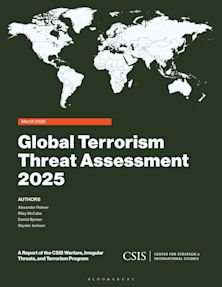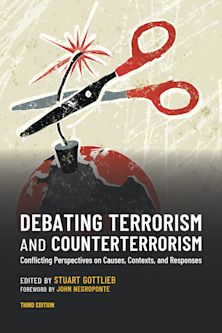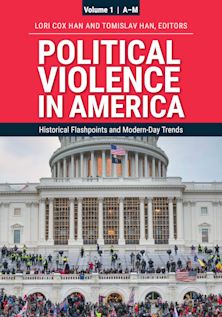- Home
- ACADEMIC
- Politics & International Relations
- Terrorism and Political Violence
- The Domestic Politics of Terrorism
The Domestic Politics of Terrorism
Lessons from the Clinton Administration
The Domestic Politics of Terrorism
Lessons from the Clinton Administration
You must sign in to add this item to your wishlist. Please sign in or create an account
Description
The Domestic Politics of Terrorism: Lessons from the Clinton Administration explores the Clinton administration’s development of a novel playbook by which to exploit terrorism for domestic political advantage, focusing particularly on the importance of issue framing, instrument selection, and implementation strategies. While Americans were introduced to transnational terrorism long before the first World Trade Center bombing in 1993, it was Clinton who first confronted large-scale terrorism targeting Americans both at home and abroad, and who developed an invaluable template for future policymakers navigating a political landscape increasingly defined by high-profile terrorist events.
Table of Contents
Chapter 2: The World Trade Center Bombing
Chapter 3: The Oklahoma City Bombing
Chapter 4: The Khobar Towers and Atlanta Olympics Bombings
Chapter 5: The African Embassy Bombings
Chapter 6: The U.S.S. Cole Bombing
Chapter 7: Terrorism and the Clinton Presidency
Chapter 8: Lessons
Product details
| Published | 19 Dec 2019 |
|---|---|
| Format | Ebook (Epub & Mobi) |
| Edition | 1st |
| Extent | 268 |
| ISBN | 9781793609991 |
| Imprint | Lexington Books |
| Publisher | Bloomsbury Publishing |
About the contributors
Reviews
-
“The Domestic Politics of Terrorism: Lessons from the Clinton Administration is a must-read for scholars and students alike. As a case study in presidential leadership in the post-Cold War, pre 9-11 era, it informs us how Bill Clinton learned to frame terrorist challenges and rally the public, allies, and political opponents to establish 21st century public policy goals and serve presidential political purposes as well.”
Shelton L. Williams, President of The Osgood Center for International Studies
-
“Professor Hulme has compiled a riveting account of the interaction between/among the Clinton administration, partisan politics, the American public, and the media to assess Clinton’s counterterror legacy. This book traces major terrorist attacks on the US assets, including but not limited to, Khobar Tower bombings and the Cole bombing episode with a view toward exploring their historical and domestic implications. It is the first to include a systematic survey of the Clinton presidency in managing such a global menace, and it constitutes a unique treatment of all political aspects pertaining to coping with global terrorism in one comprehensive and definitive volume.”
Mahmood Monshipouri, San Francisco State University

ONLINE RESOURCES
Bloomsbury Collections
This book is available on Bloomsbury Collections where your library has access.



































